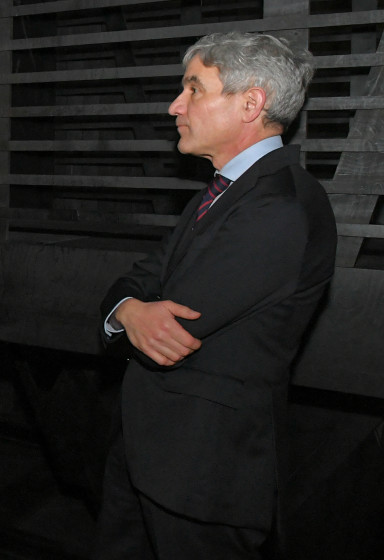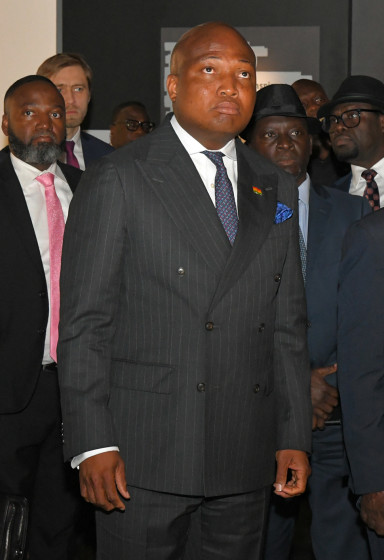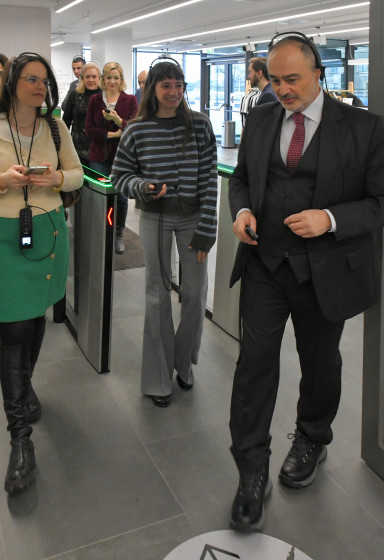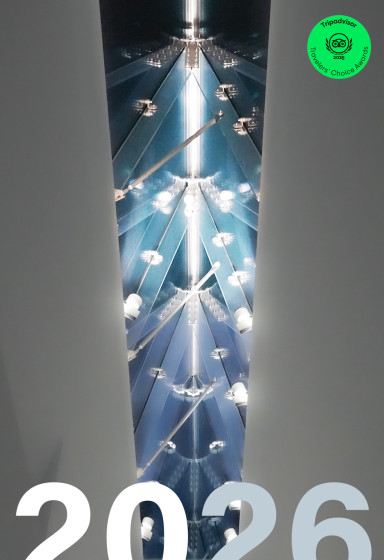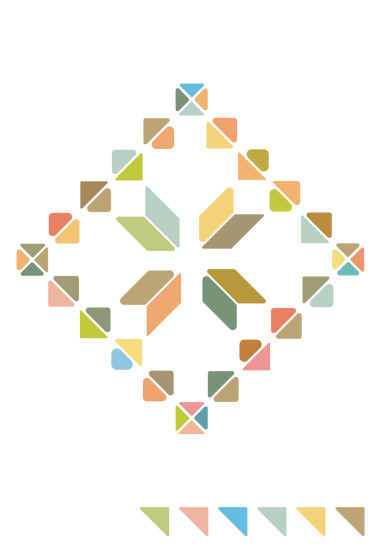Donate to Museum
Each donation helps to ensure the Museum's activities, allowing it to function and provide information for people from all over the world.
The Museum is grateful to each donor and invites everyone to contribute.
Look into the collection of the Museum: Story of Vitolds Snipkis
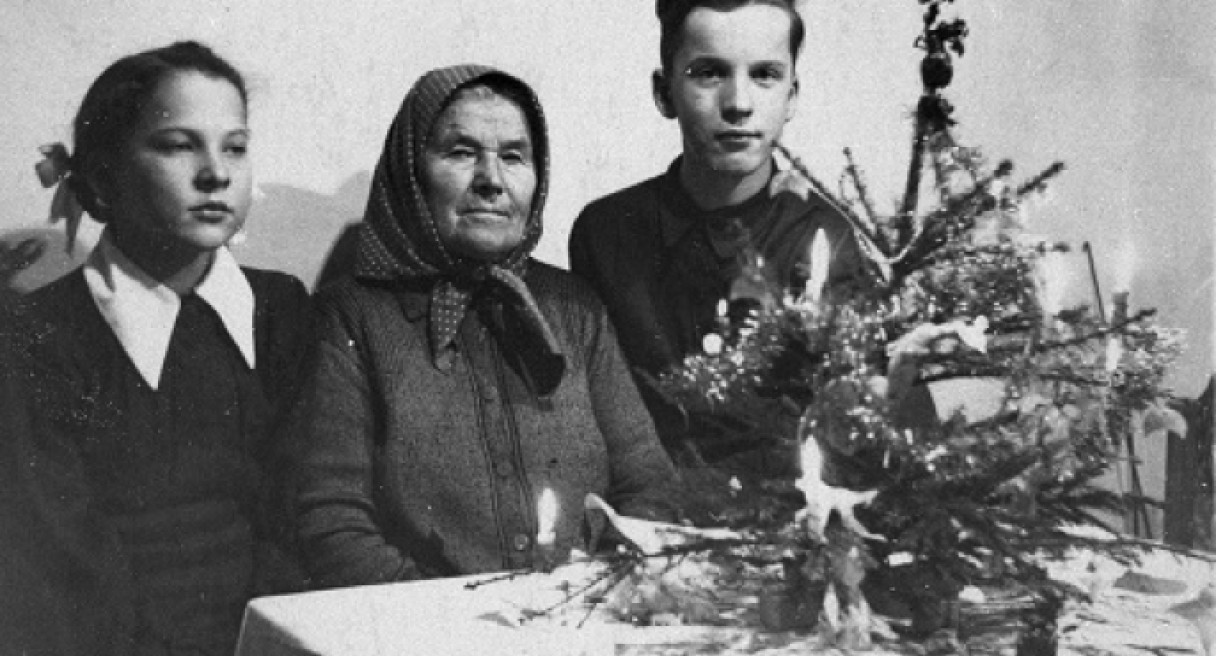
The Museum of the Occupation of Latvia invites you to view a testimony from its collection. It is the testimony of Vitolds Snipkis who reveals life and living conditions in forced exile
Vitolds Snipkis was born 10 July 1932 in the “Starutiņi” farmstead in Latvia. His father, Jānis Snipkis, was a blacksmith who married Olga Neimane. After the wedding, Olga’s parents bestowed her “Starutiņi”. As a blacksmith Jānis Snipkis could save up enough money and eventually buy the neighboring property “Avotiņi”. Both properties together included 38 ha.
Vitolds Snipkis was one of four children: his sister Silvija was born 1935, his brother Egons 1938 and sister Zigrīda 1941. The family lived and worked on their property until the occupation of Latvia by the Soviet Union in 1940. Then the family’s land was partly confiscated by the state and distributed to other farmers. In 1941, Latvia was occupied by Nazi Germany and Jānis Snipkis was drafted into the German armed forces. In 1949, during the second Soviet mass deportation from Latvia Vitolds Snipkis and his family were deported to the Kalachinsky Oblast.
Life in exile
Vitolds Snipkis and his family were housed in a barracks that was largely fixed up by the Latvian families that lived there. The time of its construction was unknown and there were no hints of how it was used previously. The sovkhoz centre had a number of such houses and all of them were called barracks.
The barracks where Vitolds lived had two small rooms and an even smaller kitchen. The Snipkis’ family room had a home-made vehicle battery charger that was used for transportation. Eventually, Vitolds had saved enough money and in 1955 bought a rundown K-125 motorcycle for 700 rubles. The motorcycle had many defects but Vitolds was young and convinced that he could fix it up. Vitolds worked as an electrician and had access to a workshop and its machines. He remarks that not everyone could repair a motorcycle, so that he was quite proud of his achievement.
About life and relations with others in the Kalachinsky Oblast Vitolds said the following:
“There were various relationships with the Russians. As an electrician, I had to go from house to house to check how much power had been used. There were Russians who treated us (exiles) with understanding, there were those who did not understand, who we were… Although we were in Siberia, we were still young and our life had just started. Some Russians had IŽ motorcycles. Sometimes a motorcycle would not work. Latvians were the ones who could fix them, and eventually Latvians were trusted to fix them. By fixing motorcycles some of us became friends and gained their trust. Sometimes we were given motorcycles to ride around and have fun. In due time, we got bored with a ride on a friend’s motorcycle, so we started to get our own. The only way that we could do that was to look for old parts and put them together.
As one of the crucial points during the exile Vitolds mentions the death of Stalin. After Stalin died in 1953, it was possible to see people's true thoughts and feeling about him. Vitolds’ family members were impartial, other families shed a tear. But everyone hoped for changes for the better. At that time, Vitolds’ family was the only remaining Latvian family in the sovkhoz centre.
Vitolds also mentions livelihood and chances of earning something during the early years of exile.
“We lived without thoughts about the future, we lived for the moment, for today. We hoped that everything would end soon enough, and that I would return to where I wanted to be. We worked and got paid. We did not have a farm. We got by on what we earned. The first years were the harshest. We did not know if we would have enough. The last years – after the death of Stalin – were slightly better.”
As Vitolds points out, they were constantly supervised in exile. Each month they had to check in with the supervisor to confirm that no one had escaped, died, or gotten ill. The supervisor was a Cheka officer. Everyone who lived in the Kalachinsky Oblast had to report to him. Even outside the monthly check-ups if someone got ill and had to be taken to Omsk for a medical check-up. The problem arose because there were no medical stations anywhere else. When Vitolds had to be taken to Omsk for a check-up, he remembers his trip as something odd.
“You might think that all Cheka agents were severe and rough but this man was fairly average. He had a brother in Omsk and would spend the night at his place. You would think that the brother would live somewhat better than regular people. But we ate the same oat porridge – he lived the same way as everyone else. Humbly. He gave us the same oat porridge…”
Work
When they arrived on 9 April 1949, they were told that work starts on 12 April. Vitolds’ father was made an assistant to the local smith, but in due time he became the main smith. Vitolds himself started to do odd jobs by collecting firewood and cleaning the granary. For odd jobs, he got irregular payment.
Vitolds’ father required someone to assist in the smithy. Vitolds started to help his father. He worked with his father for several years, even managed to save up some money because there were many jobs for a blacksmith. His savings were about 500 to 600 rubles. But if the same work would have been done in Latvia, the savings would have been around 1000 rubles.
In school Vitolds liked physics, especially electronics, and others quickly saw his interest and understanding of this subject. They arranged a job for him at the radio lines. The sovkhoz had a radio network and Vitolds was assigned to install these lines to the houses. Thus he started to work as an electrician. Each month he had to go to every house and check the electricity consumption. Quite often the ones who were lucky to have radio lines drawn (electrical connections) to their houses were glad and thankful for this innovation, and even showed it off to neighbors.
Festivities
To the question whether his family celebrated any festivals, he gave several answers.
“We usually celebrated Christmas. In Upsēde (western Latvia) we had a loving aunt, sister of our mother. At Christmas, she usually sent us a package. We could receive packages. At the same time the aunt sent us a Christmas tree. It was the only way we could get a Christmas tree. Where we were settled there were only deciduous trees. We erected the Christmas tree, decorated it and celebrated Christmas with our family”.
Other festivities were part of their family life as well. They celebrated Easter, birthdays and name days. 18 November (Proclamation Day of the Republic of Latvia) was not celebrated, but it was quietly remembered. The festivities were celebrated in a close circle of family and friends.
Vitolds Snipkis and his family were freed on 1 October 1956, and they returned to Latvia. But a year later, they went on a trip to their former place of settlement to visit the grave of Vitolds’ sister Silvija and grandmother Minna. He remembers that even then, the cemetery was already overgrown, and if he went there today, it would probably be impossible to find the grave.

From left: Zigrīda Snipke, Minna Snipke and Egons Snipkis at a table. On the table there is a decorated Christmas tree. The Christmas tree came from Latvia in a package.

At the decorated Christmas tree: first row from left – Minna Snipke, Zigrīda Snipke, Olga Snipke and Jānis Snipkis. Second row from left Vitolds Snipkis and Egons Snipkis. The Christmas tree was sent from Latvia in a package. December 25 1955 Omsk oblast Gorjkovsk.

Deported during festivity August 1 1956 Omsk oblast Gorjkovsk.

From left Nikolajs Rudzuroga, Vitolds Snipkis. Men wear winter hats and quilted coats. They are sat on a motorcycle. 1955 Omsk oblast Gorjkovsk.
